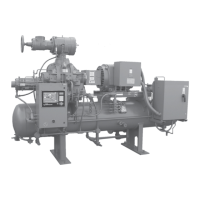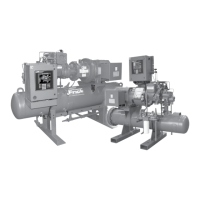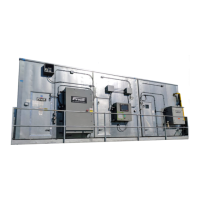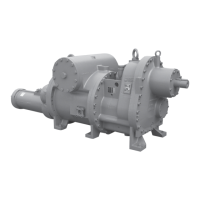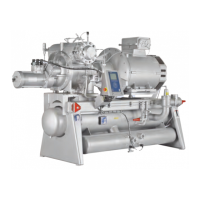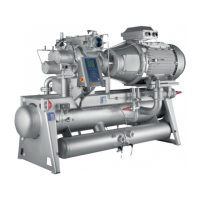RWF II ROTARY SCREW COMPRESSOR UNITS
MAINTENANCE
070.610-IOM (JUN 11)
Page 32
NLGI Grease Compatibility Chart
Aluminum Complex
Barium
Calcium
Calcium 12hydroxy
Calcium Complex*
Clay
Lithium
Lithium 12hydroxy
Lithium Complex
Polyurea
Aluminum Complex – I I C I I I I C I
Barium I – I C I I I I I I
Calcium I I – C I C C B C I
Calcium 12hydroxy C C C – B C C C C I
Calcium Complex I I I B – I I I C C
Clay I I C C I – I I I I
Lithium I I C C I I – C C I
Lithium 12hydroxy I I B C I I C – C I
Lithium Complex C I C C C I C C – I
Polyurea* I I I I C I I I I –
B = Borderline Compatibility
C = Compatible
I = Incompatible
* Standard
OPERATING LOG
The use of an operating log as included in this manual (see
Table of Contents) permits thorough analysis of the operation
of a refrigeration system by those responsible for its mainte
nance and servicing. Continual recording of gauge pressures,
temperatures, and other pertinent information, enables the
observer and serviceman to be constantly familiar with the
operation of the system and to recognize immediately any
deviations from normal operating conditions. It is recom
mended that readings be taken at least every four hours.
MOTOR BEARINGS
Follow the motor manufacturer’s maintenance recommenda
tions for lubrication. See Figure 36.
Make sure the motor bearings are
properly lubricated before start-up as
required by the motor manuf ac turer.
GREASE COMPATIBILITY
If it becomes necessary to mix greases, be careful not to
combine different oil bases or thickeners. DO NOT mix a
mineral oilbase grease with a synthetic oilbase grease.
Also, a grease with a lithium thickener should not be mixed
with one containing a sodium thickener. The table illustrates
the compatibility of various types of grease based on results
by National Lubricating Grease Institute (NLGI). The chart indi
cates a great variance in compaibility with the greases tested.
3. Oil samples for analysis should be taken after the oil lter.
A 1/4" purge valve is provided in the oil lter canister head.
OIL SAMPLING PROCEDURE
Exercise extreme caution in the vi-
cinity of operating equipment. Skin
contact with lube oil or inhalation
of vapors can cause serious injury or death, consider
gloves and eye protection.
Sample hot, active uid while the equipment is operating.
Sample after 30 minutes of compressor operation.
1. Unthread the oil sampling valve cap and locknut (Figure
34).
DO NOT UNTHREAD THE VALVE
FROM THE FILTER HOUSING OR PIP-
ING OR UNCONTROLLED RELEASE
OF OIL WILL RESULT.
2. Unthread the bottle cap and carefully position under the
oil sampling valve spout. Place the spout inside the bottle.
3. Push the oil sampling valve to open and release to close
(spring actuated, see Figure 35). Fill the bottle ¾ full.
4. Retighten bottle cap, sampling valve cap and locknut.
Please note that the locknut prevents accidental release of
oil.
5. Record all necessary sample data and identication on
forms and labels and send promptly to the lab for results.
Locknut
Locknut
Valve Cap
& Spout
Valve Cap
& Spout
DO NOT
UNTHREAD
VALVE!
Figure 34
Figure 35 - Oil Sampling Valve
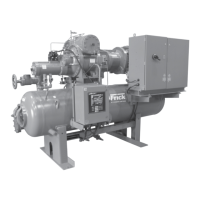
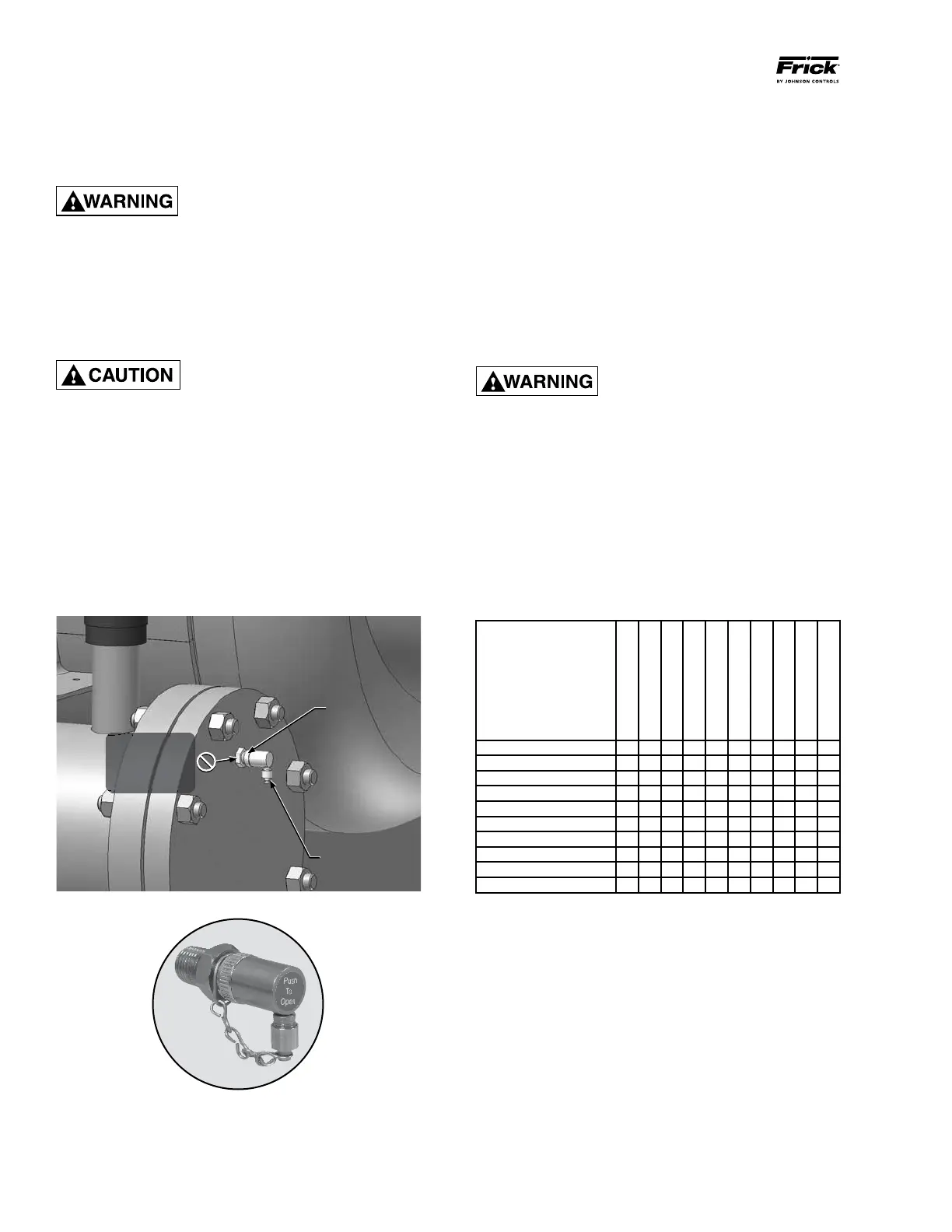